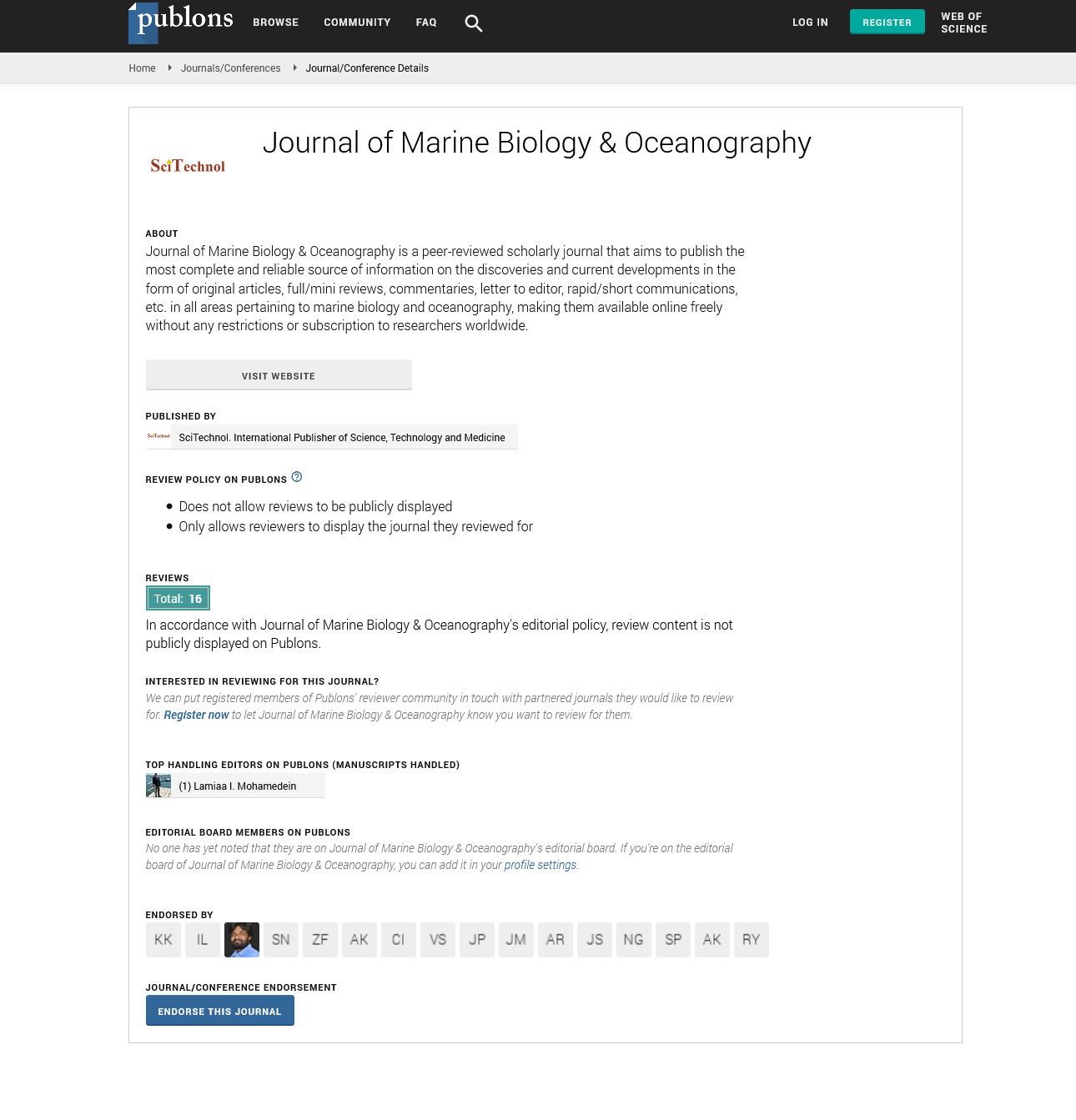Editorial, J Mar Biol Oceanogr Vol: 1 Issue: 1
A Multidisciplinary Team Approach is Required to Understand Larval Metamorphosis in High-CO2 Coastal Oceans
| Thiyagarajan V* |
| Swire Institute of Marine Science and School of Biological Sciences, The University of Hong Kong, Hong Kong SAR |
| Corresponding author : Thiyagarajan V Swire Institute of Marine Science and School of Biological Sciences, The University of Hong Kong, Hong Kong SAR E-mail: rajan@hku.hk |
| Received: August 20, 2012 Accepted: August 20, 2012 Published: August 23, 2012 |
| Citation: Thiyagarajan V (2012) A Multidisciplinary Team Approach is Required to Understand Larval Metamorphosis in High-CO2 Coastal Oceans. J Mar Biol Oceanogr 1:1. doi:10.4172/2324-8661.1000e104 |
Abstract
A Multidisciplinary Team Approach is Required to Understand Larval Metamorphosis in High-CO2 Coastal Oceans
Marine invertebrates have a complex life cycle in which the free-swimming planktotrophic larval forms feed on planktons, accumulate energy reserves, develop into complex phase that is capable of selecting right surface for attachment and metamorphose into a benthic juvenile phase. The transformation of larva to adult is energetically demanding and involves complex physiological and molecular network and changes. Understanding this complex larval metamorphic process at developmental, physiological, and molecular levels is extremely important for successful and sustainable aquaculture and fishery management. Moreover, larval attachment and metamorphosis on ship hulls, cooling water pipe lines and several other marine installations causing serious problems to marine industries, called biofouling, which cost us >10 billion USD per year.
 Spanish
Spanish  Chinese
Chinese  Russian
Russian  German
German  French
French  Japanese
Japanese  Portuguese
Portuguese  Hindi
Hindi 
